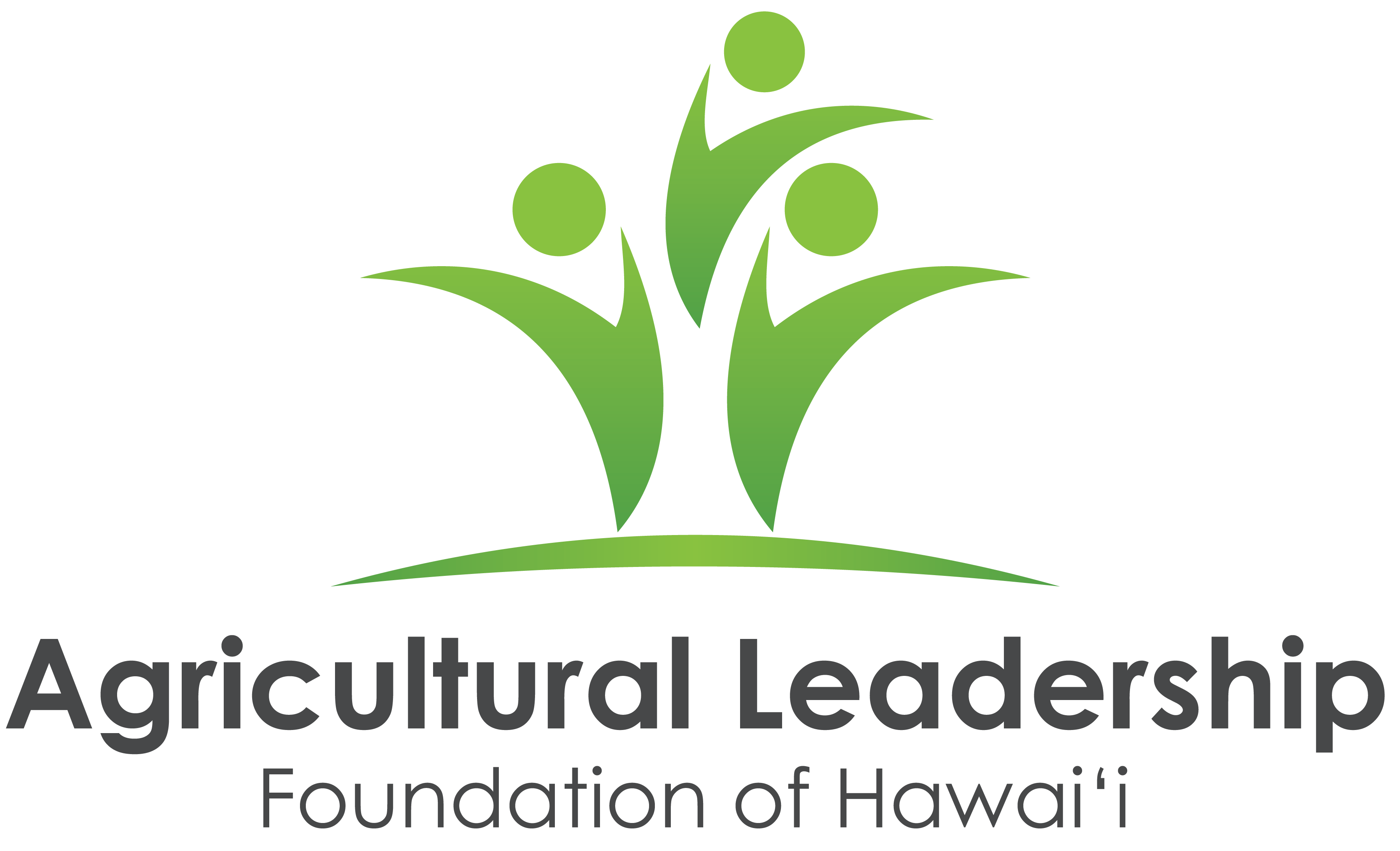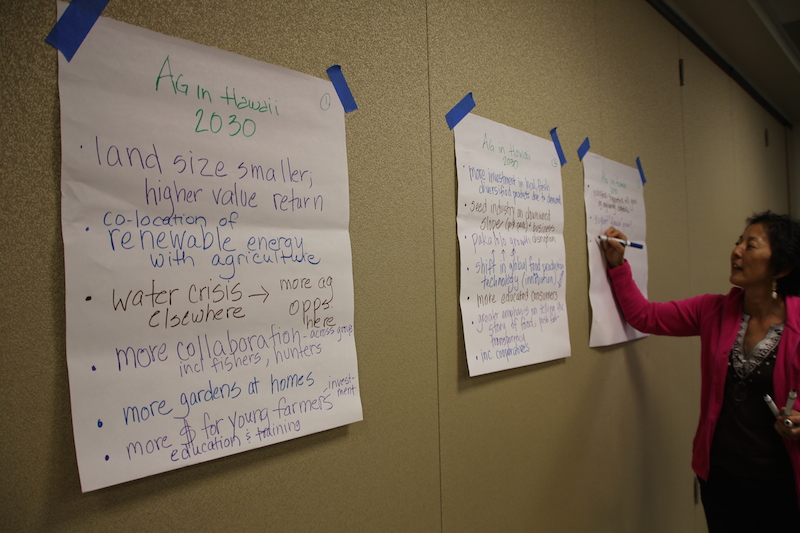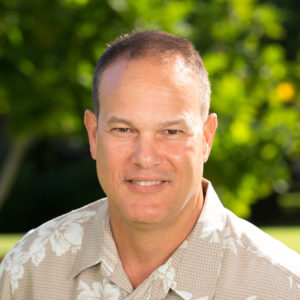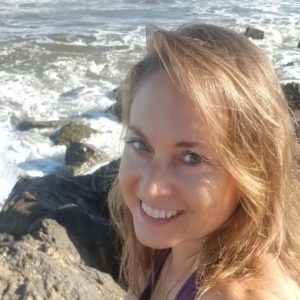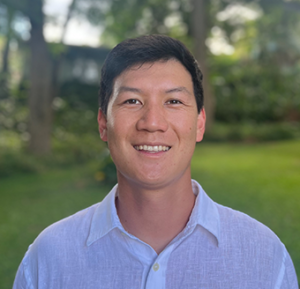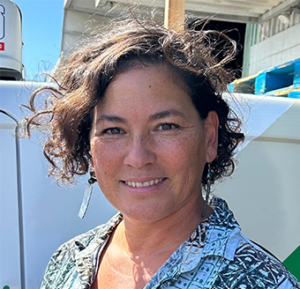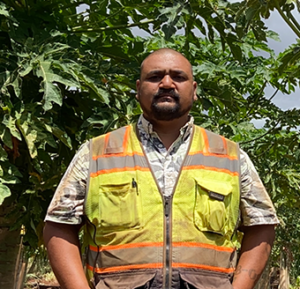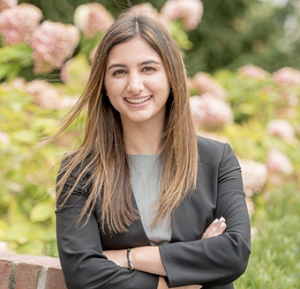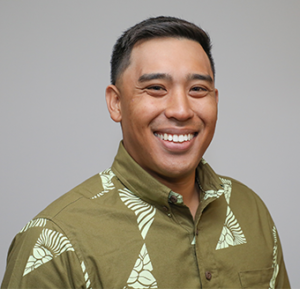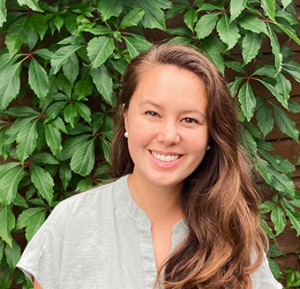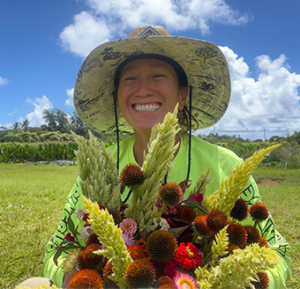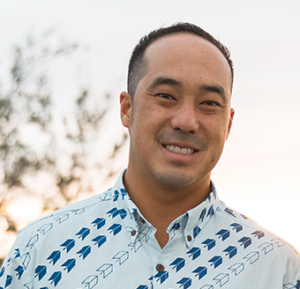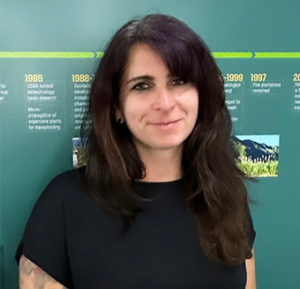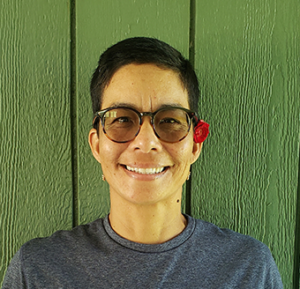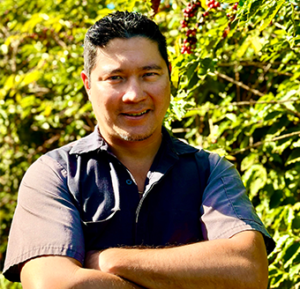We are all here for different reasons.
Some of us work in the agriculture sector in some form. Some manage natural resources or promote sustainable energy sources. And others — like me — work somewhere in the periphery.
But we all have something in common: a desire to better understand the issues surrounding Hawai‘i’s agriculture in order to be agents of change.
That’s why we’re here, in the 15th class of the Agricultural Leadership Foundation of Hawai‘i’s Agricultural Leadership Program.
The goal of this statewide program, established by the nonprofit in 1982, is train and groom promising leaders from Hawai‘i’s agriculture, natural resources management and rural community sectors. This 18-month program was designed to provide its participants the necessary tools and skills to be effective influencers of change and leaders in the community.
“It’s not about how to apply the best pesticide or till the ground,” says program director Pauline Sato in today’s first seminar at the Komohana Research & Extension Center in Hilo. “The main goal is to learn about agriculture in Hawai‘i, to understand the breadth of it, and to be better advocates and leaders.”
But what did that mean, to be a leader?
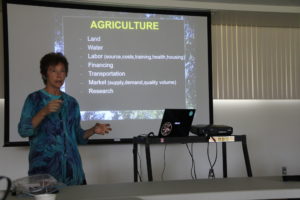 Well, that starts with knowledge.
Well, that starts with knowledge.
Stephanie “Stevie” Whalen, the executive director of the nonprofit Hawai‘i Agriculture Research Center (shown), started our four-day seminar on Hawai‘i Island with a presentation on the history of agriculture in Hawai‘i and the challenges and opportunities for the future.
We learned about what it takes to make agriculture work here — from labor to energy to financing — and how these things have changed or evolved over the last few decades.
And while times have definitely changed — ag land is much more expensive, children of farmers don’t want to farm, there are more and stricter regulations — Whalen sees more opportunity in agriculture today than ever before.
“Right now, I’m very excited about agriculture,” she says. “Before that, I was just hanging in there.”
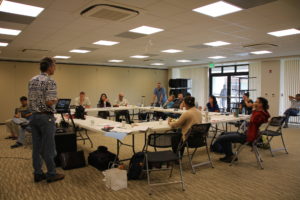 Then Jeffrey Melrose, a land use planning consultant who worked on a state-funded project to digitally map the current agricultural footprint in the state, showed us how farming has changed since 1937. There are far fewer plantations and pasture land, more diversified ag, and an increase in people buying ag-designated land to use as residential estates.
Then Jeffrey Melrose, a land use planning consultant who worked on a state-funded project to digitally map the current agricultural footprint in the state, showed us how farming has changed since 1937. There are far fewer plantations and pasture land, more diversified ag, and an increase in people buying ag-designated land to use as residential estates.
So why does all of this matter to us, the future leaders of Hawai‘i’s ag?
Because you need to have a sort of baseline, a starting point. This information is a tool that helps us structure an informed discussion and collaborative thinking about agriculture in Hawai‘i.
You need to know what you’re talking about before you start talking.
And then we learned about being a leader.
Leaders come in many forms. They can be collaborative, people-focused, visionaries or experts. They can serve as catalysts for change or strategizers for the future.
And people operate with their own set of values, rules, guidelines and expectations, too. Some are cautious and critical. Some rely on intuition and hunches. Others seek out alternatives or new ideas.
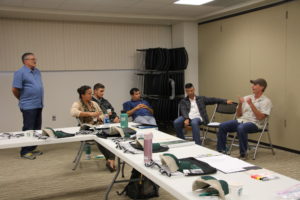 We learned all about this from Peter Adler, Ph.D. (shown), a planner, mediator and facilitator who, himself, has worked as a CEO.
We learned all about this from Peter Adler, Ph.D. (shown), a planner, mediator and facilitator who, himself, has worked as a CEO.
Great leaders are collaborators, stewards, realizes and promotes the strengths of the team. They see competition as an opportunity to be more creative.
And they’re also burdened by the role of being a leader.
It’s not an easy thing.
“The leadership role, for me, is about managing ambiguity and paradoxes,” Adler says. “There’s no perfect pathway through all of this stuff. It’s about getting comfortable with the paradoxes and contradictions and living in the world between them.”
And we learned all this in Day 1.
It turns out this program is more than just learning about Hawai‘i agriculture. It’s really preparing us to take the lead — as natural resources managers, as farmers and ranchers, as educated consumers, as influences, or as just people who are striving to make better decisions.
Learning is just part of the process.
